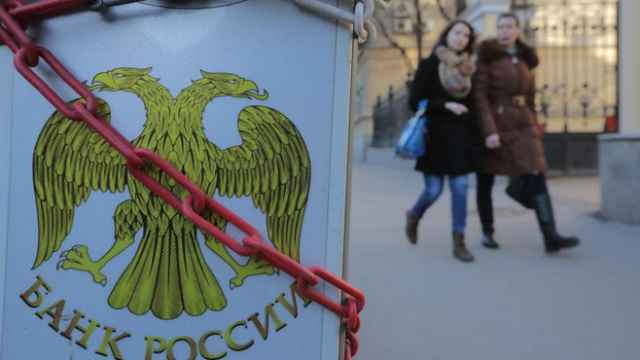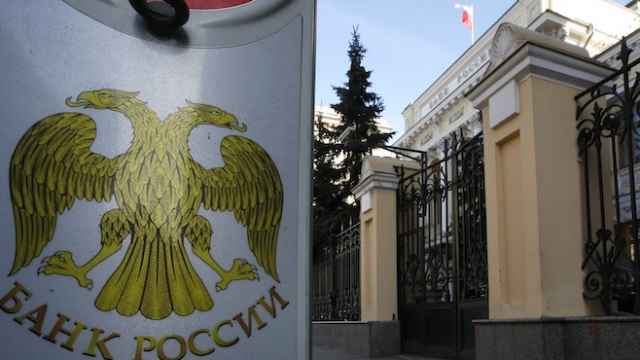The Russian ruble was mixed but relatively stable on Monday as the negative effect of lower oil prices was balanced by exporters beginning to sell foreign currency to finance monthly tax payments.
At 0800 GMT, the ruble was 0.1 percent stronger against the dollar at 62.16 but down 0.3 percent to 65.55 versus the euro.
The ruble had edged down against both currencies on opening, following oil, with Brent crude declining around 1 percent on Monday to around $54.1 a barrel.
After rallying last month, the oil price is under renewed pressure because of the strong dollar and as storage capacity is becoming exhausted.
Many analysts predicted a negative start to the week for Russian assets, given the weakness of the oil price.
"As before we are convinced that prospects for the growth on the market for 'black gold' are strongly limited, and a fall toward $50 could happen already this week," TeleTrade analyst Alexander Yegorov said in a note.
Investors are also cautious because of risk aversion linked to a U.S. Federal Reserve meeting on Wednesday, which could presage higher U.S. interest rates, further boosting the dollar.
"Undoubtedly the main attention of the markets this week will be concentrated on the meeting of the U.S. Federal Reserve," ING economist Dmitry Polevoy said in a note.
Russian share indexes were mixed and relatively stable after sharp falls on Friday. On Monday the dollar-based RTS was down 0.6 percent to 828 points while the ruble-based MICEX had risen 0.4 percent to 1,634.
The indexes were in part reacting to moves in the ruble since Friday's stock market close, as the currency market was open on Friday evening when the oil price fell sharply. A weaker ruble generally boosts the MICEX and drags down the RTS.
A Message from The Moscow Times:
Dear readers,
We are facing unprecedented challenges. Russia's Prosecutor General's Office has designated The Moscow Times as an "undesirable" organization, criminalizing our work and putting our staff at risk of prosecution. This follows our earlier unjust labeling as a "foreign agent."
These actions are direct attempts to silence independent journalism in Russia. The authorities claim our work "discredits the decisions of the Russian leadership." We see things differently: we strive to provide accurate, unbiased reporting on Russia.
We, the journalists of The Moscow Times, refuse to be silenced. But to continue our work, we need your help.
Your support, no matter how small, makes a world of difference. If you can, please support us monthly starting from just $2. It's quick to set up, and every contribution makes a significant impact.
By supporting The Moscow Times, you're defending open, independent journalism in the face of repression. Thank you for standing with us.
Remind me later.






